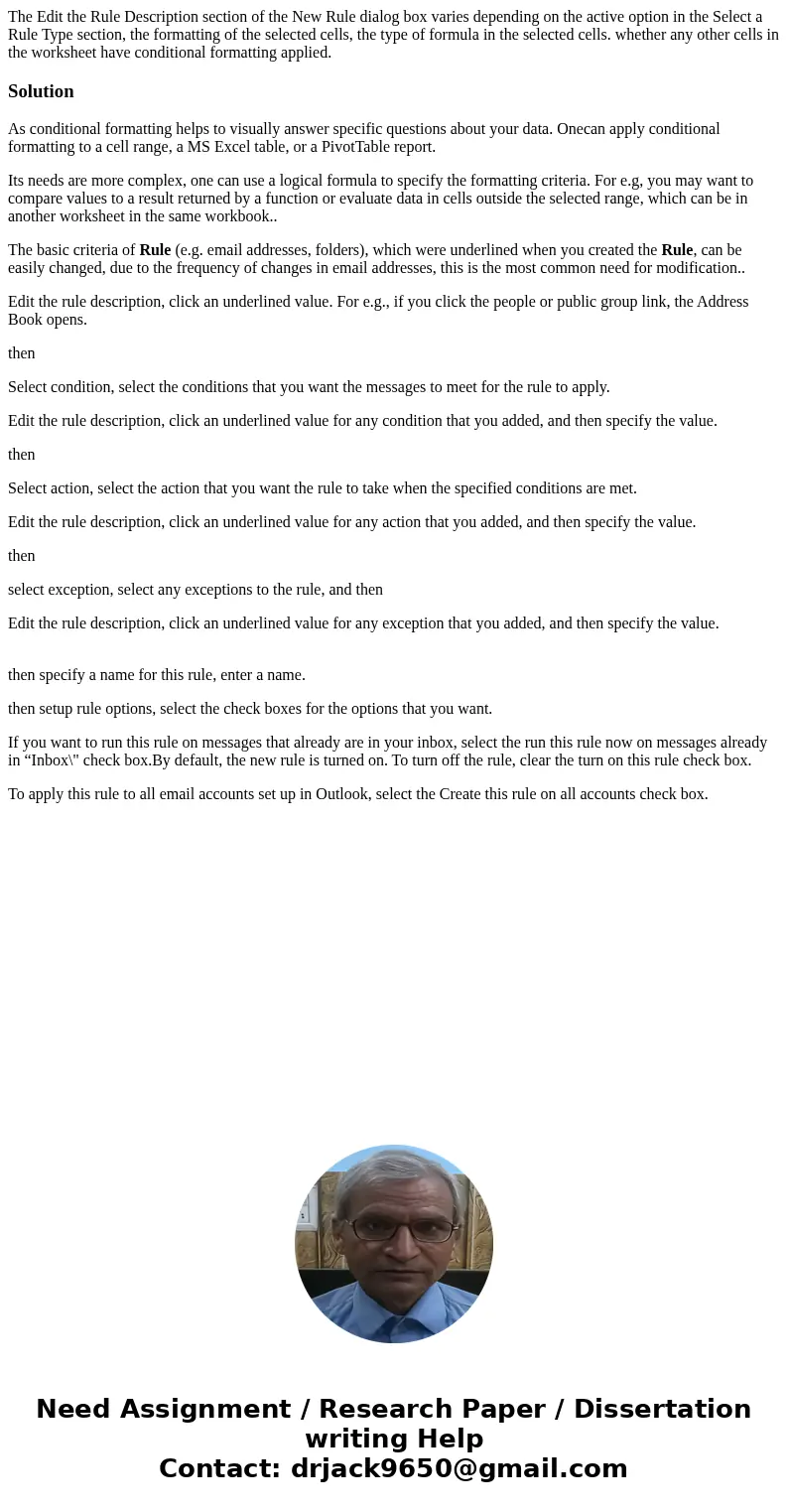The Edit the Rule Description section of the New Rule dialog
Solution
As conditional formatting helps to visually answer specific questions about your data. Onecan apply conditional formatting to a cell range, a MS Excel table, or a PivotTable report.
Its needs are more complex, one can use a logical formula to specify the formatting criteria. For e.g, you may want to compare values to a result returned by a function or evaluate data in cells outside the selected range, which can be in another worksheet in the same workbook..
The basic criteria of Rule (e.g. email addresses, folders), which were underlined when you created the Rule, can be easily changed, due to the frequency of changes in email addresses, this is the most common need for modification..
Edit the rule description, click an underlined value. For e.g., if you click the people or public group link, the Address Book opens.
then
Select condition, select the conditions that you want the messages to meet for the rule to apply.
Edit the rule description, click an underlined value for any condition that you added, and then specify the value.
then
Select action, select the action that you want the rule to take when the specified conditions are met.
Edit the rule description, click an underlined value for any action that you added, and then specify the value.
then
select exception, select any exceptions to the rule, and then
Edit the rule description, click an underlined value for any exception that you added, and then specify the value.
then specify a name for this rule, enter a name.
then setup rule options, select the check boxes for the options that you want.
If you want to run this rule on messages that already are in your inbox, select the run this rule now on messages already in “Inbox\" check box.By default, the new rule is turned on. To turn off the rule, clear the turn on this rule check box.
To apply this rule to all email accounts set up in Outlook, select the Create this rule on all accounts check box.

 Homework Sourse
Homework Sourse